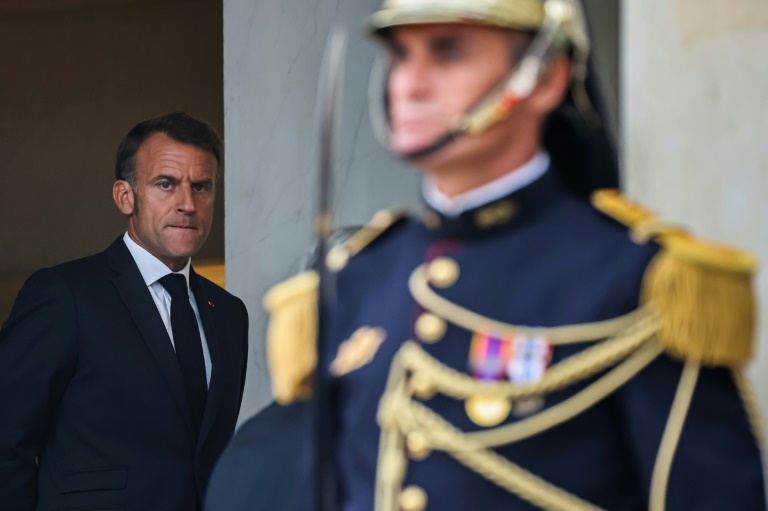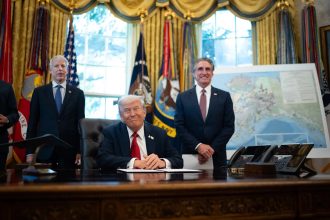French Prime Minister Francois Bayrou was set to fall in a confidence vote in parliament on Monday after just nine months in the job, sparking fresh political uncertainty for France and piling pressure on President Emmanuel Macron.
Bayrou blindsided even his allies by calling a confidence vote to end a months-long standoff over his austerity budget, which foresees almost 44 billion euros ($52 billion) of cost savings to reduce France’s debt pile.
Opposition parties across the board have made it clear they will vote against his minority government, making it highly improbable he will get enough backing to survive — he needs a majority of the 577 MPs in the National Assembly.
Bayrou himself, who according to officials has invited his ministers for farewell drinks Monday evening, appears to acknowledge that his time has run out.
In a bitter remark on Sunday, he criticised political parties that he said “hate each other” but yet were joining forces “to bring down the government”.
Bayrou would be the second French prime minister in succession to have suffered such a fate after Michel Barnier was ejected in December after only three months in office.
Bayrou, the sixth prime minister since Macron was first elected in 2017, is expected to again warn in his parliamentary speech Monday of the “seriousness of the situation” facing France.
He is set to address parliament from 1300 GMT, with the vote expected after 1700 GMT.
– Poor polls –
The vote will force Macron to face one of the most critical decisions of his presidency: whether to appoint a seventh prime minister to try to thrash out a compromise, or call snap elections in a bid to have a more accommodating parliament.
He is spearheading European efforts to end Russia’s war on Ukraine, boosting his international profile, but polling at home does not make pretty reading.
According to a poll by Odoxa-Backbone for Le Figaro newspaper, 64 percent of French want Macron to resign rather than name a new prime minister, a move he has ruled out. He is forbidden from standing a third time in 2027.
Around 77 percent of people do not approve of his work, Macron’s worst-ever such rating, according to an Ifop poll for the Ouest-France daily.
Addressing the crisis after an international summit on Ukraine last Thursday, Macron called on France’s political forces to demonstrate “responsibility” and ensure “stability”.
“The reshaping of the world is changing many things for our Europe. In this context, France must continue to move forward,” he said.
But alongside political upheavals, France is also facing social tensions.
A left-wing collective calling itself “Block Everything” is calling for a day of action on Wednesday, and trade unions have urged workers to strike on September 18.
– Sleeping giant –
There is no guarantee an election would result in any improvement in the fortunes of Macron’s centre-right bloc in parliament.
But there are signs that he could be eyeing cooperation with the Socialist Party (PS), a one-time giant of French politics that has fallen into the doldrums in recent years.
At a meeting Tuesday of the centrist parties that support him, Macron urged them to “work with the Socialists”, a participant said, asking not to be named. All those present were opposed to snap elections, the person added.
Socialist leader Olivier Faure has made no secret of his readiness to take the post of prime minister, even producing his own draft budget.
But Socialist backing would not automatically attract support from other left-wing forces.
“It would be workable if the Socialist Party says: ‘We’re overthrowing the alliance and governing with the central bloc,'” said a close associate of Macron, adding that for now the president was keeping his cards close to his chest.
bur-sjw-jh/as/js









